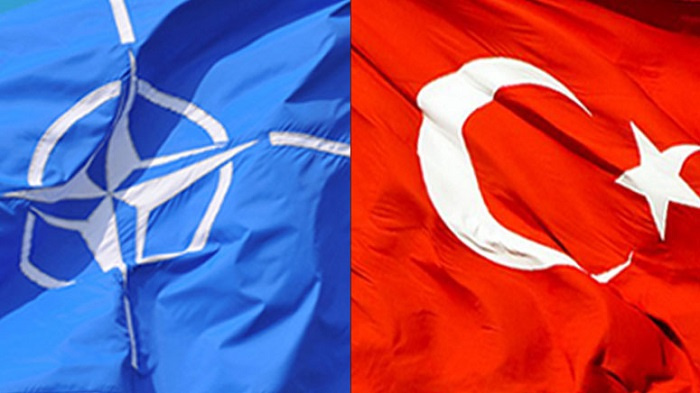Turkey’s moves tactical to strengthen leverage in NATO

Recently tensions between Turkey and NATO has risen especially after NATO drills in Norway, where Turkish President Recep Tayyip Erdogan and modern Turkey's founding father Mustafa Ataturk were pictured on a "chart of enemies."
NATO’s secretary general has apologized to Turkey over the incident but Turkish president Recep Tayyip Erdogan rejected it and criticized the NATO strongly.
After the incident Yalcin Topcu, a key advisor to the president Erdogan, urged Turkey’s lawmakers to reconsider Turkey's membership in the defence bloc.
This is the first time that a Turkish official ask for reconsidering the country’s membership in the organization.
Besides, Turkey and its allies in the NATO have different views over the ongoing crises in Syria and Iraq and Ankara has been criticized by the key alliance members over purchase of Russian made S400 missile system.
To learn more about the issues an interview is done with Nader Entessar Professor and Chair of Department of Political Science and Criminal Justice, University of South Alabama.
Some believe Turkey has already started to withdraw from the alliance by buying S400 missiles from Russia and working with Iran and Russia in Syria and Iraq. What do you think of this? What are the real reasons for this differences?
Although Turkey remains a longstanding member of NATO, it has gradually been looking to weapons sources outside NATO from time to time. Ankara has also been making tactical alliances with other countries to strengthen its security needs and bolster its strategic depth. Turkey's NATO membership is no longer a one-dimensional issue, and we should not read recent Turkish moves as a signal to withdraw from NATO anytime soon.
What are the mutual needs of Turkey and NATO?
The Cold War-era role of Turkey as a strong component of the southern flank of NATO against the Soviet Union has changed. The Soviet Union no longer exists, and Turkey's role as a bulwark against what NATO regarded as "Soviet expansionism" is now a historical relic. Nevertheless, NATO still views Turkey as an important part of its political and military mission in the Mediterranean and neighboring regions. Turkey also benefits, politically, economically and militarily, from its membership in NATO, although these benefits are in a state of flux.
Is there a possibility of withdrawal of Turkey from the bloc in long-term or Turkey’s acts are just tactical ones?
At this time, I don't see any clear moves by Turkey to withdraw from NATO and that what Turkey has done in recent months should be viewed as tactical moves to strengthen its leverage inside NATO and not to withdraw from it. Of course, in the long-run, NATO may see its role differently from what it has been since its inception and any long-term changes in NATO may impact its mission, including that of Turkey. However, we are a long way from that possibility.
Is there any alternative alliance for Turkey, if it withdraws from NATO?
Of course, countries can always make new alliances, but alliance formation is a long process and cannot be made in a short time. Given Turkey's longstanding membership in NATO, there are no alternative alliances to NATO for Turkey at this time. Turkey can and will make tactical alliances to enhance its foreign policy interests, but these alliances will remain fluid and cannot replace Turkey's NATO membership in the near future.
Can Turkey’s economy tolerate pressures from the Western allies in case the country decides to withdraw?
For the past two decades, Turkey has sought to diversify its economic partnership and has had some success in doing so. However, Ankara's economy is still a Western-centric one, and the West can still exert enormous pressure on Turkey and wreak havoc on the country's economy if it so chooses.
Interview by Payman Yazdani
Source: Mehr

